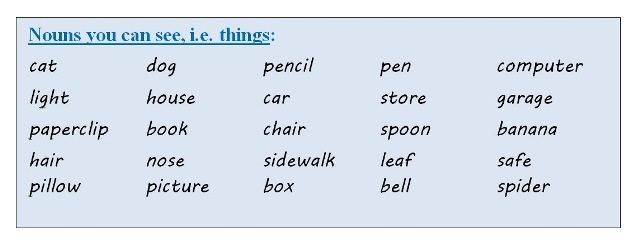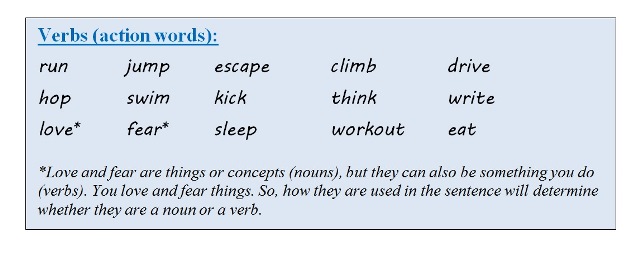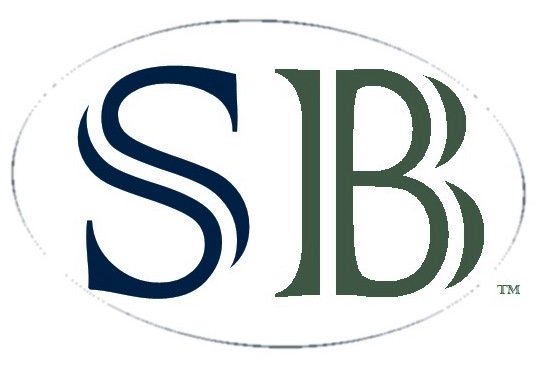Parts of Speech

Not many people remember learning the parts of speech in English class. Frankly, I think many of us try to forget it.
Why?
Because it’s hard.
There are rules and English formulas that change depending on the situation. And you must remember them all.
But learning--or refreshing--your grammar skills is important, if you want to write well.
Knowing why and how to use each will help you craft the perfect message for your audience.
Define Parts of Speech...
A sentence is made of words that have specific roles. Those roles are called parts of speech.
Teachers will sometimes call them “parts of a sentence” to make it easier for students to understand.
Here are the 4 main parts of speech:
- nouns
- verbs
- adjectives
- adverbs
Advertisement:
Nouns
Nouns are words that are the names of places, people, and things. For example, a pen is the name of a writing implement.
Below are some more examples.





Verbs
Verbs are words that people use to describe the actions of a person or thing. Words like run, drink, feel, and play are all types of verbs.

Adjectives
Adjectives are words used to describe nouns. Words like pretty, full, delicate, robust, hard, yellow, and short are all examples of adjectives.

Adverbs

And the last of these is the adverb. Some find adverbs difficult to understand.
As a teacher, the best way for me to describe an adverb is to say they are “adjectives for verbs.”
When you say,
"A mouse ran quickly."
The word “quickly” tells you how the mouse ran. It describes the verb, ran. Therefore it’s an adverb.
Others and exceptions . . .
There are variations within each of these. There are also several other names for the functions of words and groupings of words in a sentence.
Like prepositions, gerunds, participles, infinitives, and nominative, and infinitive. And there are plenty of ways to combine all these words.
But for simplicity’s sake, if you know these four on a general level, then it will be easier for you to understand the variations … when you’re ready to tackle learning those.
Understanding the grammar of your own language helps you learn another language.
Learning grammar isn’t glamorous. Sometimes is hard work. And, many times it can be confusing.
However, it will be easier for you to write well when you understand it well.
Plus, there's a perk ... :-)
Understanding and knowing grammar well makes learning a foreign language much easier too.
Advertisement:







